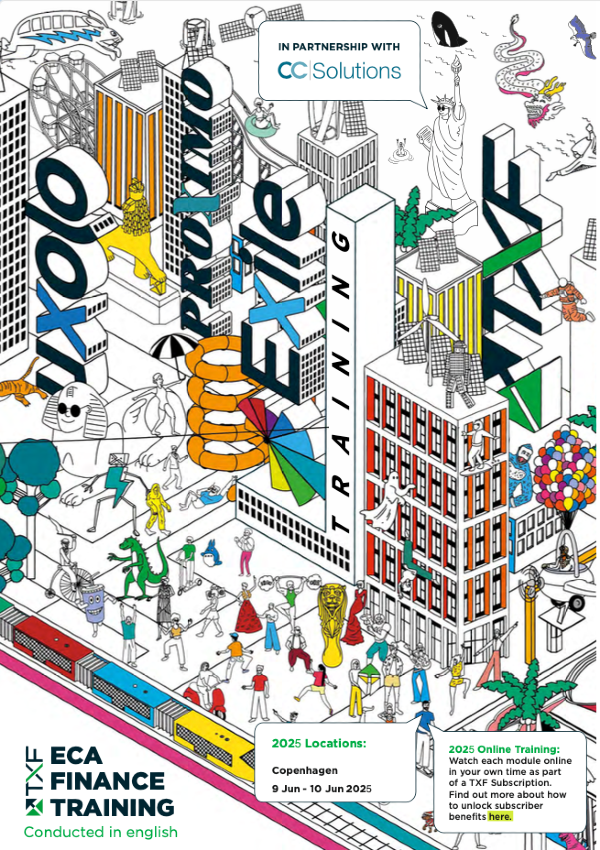ICC: Working together in trade to tackle compliance
Olivier Paul, director of finance for development at the International Chamber of Commerce (ICC) explains the need to comply with mounting regulation and compliance requirements has led to unintended consequences for trade finance.

The increase in post-crisis banking regulation is often highlighted as a major contributor to the trade finance gap – the difference between the supply and demand of trade finance – which currently stands at US$1.5 trillion, according to the Asian Development Bank.
Indeed, the trade finance gap represents significant untapped potential in trade and a host of lost opportunities in terms of economic development and inclusiveness. This is especially true for small and medium-sized enterprises (SMEs) in emerging markets, who find themselves the most neglected by financiers.
In part, the need to comply with ever increasing compliance and regulatory requirements has led to the phenomenon of 'de-risking', whereby banks selectively withdraw from correspondent banking relationships due to their profitability and risk profile. This, therefore, particularly affects SMEs in emerging markets, which are often deemed higher risk.
Access to trade finance is further impeded for this segment of the market as they often lack collateral, a documented history of past transactions and sufficient knowledge of the financial industry and instruments on offer. Yet, it is these companies that are the most reliant on the ability to access adequate trade financing.
Industry mobilisation
In turn, the industry must address the causes of this gap to enable greater access for this segment of the market.
One of its causes lies in the lack of standardisation across jurisdictions. Regulation and compliance requirements are often implemented on a national, or supranational basis. For example, the Basel III framework is not legally enforceable and must be translated into local legislation.
To enable improved market access, regulatory frameworks should align with each other and strive to avoid inconsistency which could impede banks’ appetite to provide financing. As such, to promote this standardisation of regulation, the trade finance industry has mobilised itself to help advocate for a fairer treatment of trade finance within banking regulation.
Such efforts include resolving the disadvantageous impact that Article 55 of the Bank Recovery and Resolution Directive has on trade finance instruments in Europe. Under the requirement, a letter of credit (LC) from a European bank in favour of a non-European client would no longer hold the same value (in terms of finance and legal enforcement) as the same LC opened by a bank based in the United States. This is due to a bail-in clause whereby the LC would be honoured and paid when the bank is in 'good shape'.
Through what is known as a 'reverse procedure', the industry – led by ICC – secured a waiver agreement in 2019. This means that, while all European governments must ensure that Article 55 is applied within their jurisdictions, banks can apply for a waiver with the Single Resolution Board if they consider there to be obvious reasons that justify not applying the rule.
Instances such as this, where a lack of regulatory standardisation across jurisdictions results in the detrimental treatment of trade finance, should be subject to industry-led advocacy. Working together with regulators is the only way to ensure that trade finance instruments are treated fairly, and that banks can provide necessary finance to clients of all sizes.
Digitalisation
Meanwhile, digitalisation of the trade finance industry should also help to increase access to trade finance for SMEs. Indeed, many banks involved in the industry believe fintechs could enable more efficient and cost-effective KYC and due-diligence, for example.
Automation through distributed ledger technology is expected to help cut costs, increase security and broaden access to SMEs that are currently excluded from cumbersome trade finance processes that involve layers of paperwork and bureaucratic hurdles.
A host of technology-enabled digital trade platforms exist already, and banks are also developing proprietary systems to enable digital trade. However, implementation of these initiatives will require new standards for digital trade, to ensure interoperability and sustainability of the programmes.
What’s next
Regulation and compliance requirements are vital for the security of the international banking system. However, implementation of these rules has led to inconsistent standards and expectations across jurisdictions. It is up to the industry, led by leading organisations such as ICC, to advocate for appropriate and fair treatment of trade finance within regulatory frameworks.
Standardisation and digitalisation will foster a sustainable and successful trade finance industry. And, with implementation taking up to a decade in some cases, market participants should proactively engage with regulators to ensure that regulations treat trade finance appropriately and fairly across regions.





